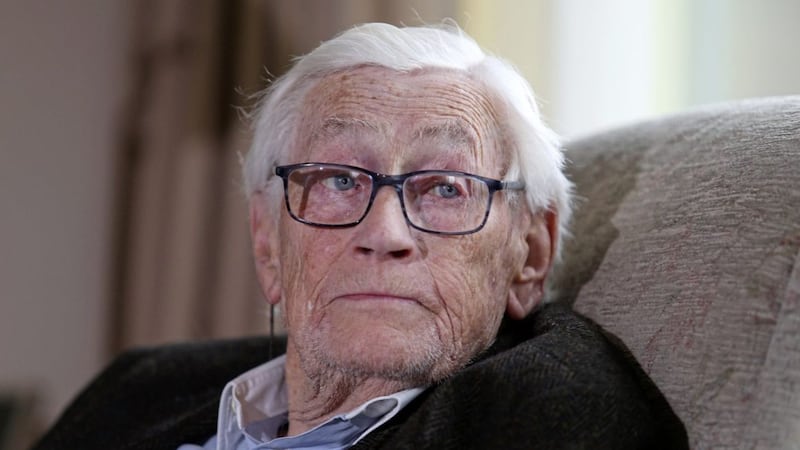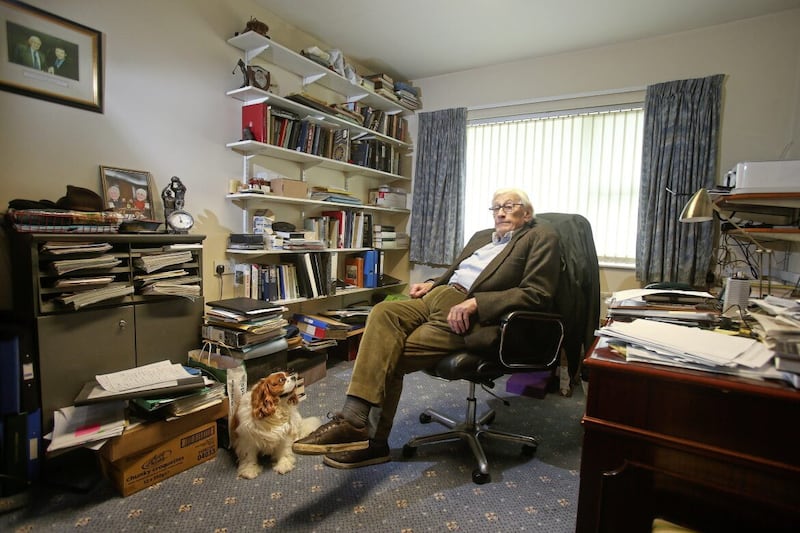THE politicians are talking again in Northern Ireland. We should be thankful for that. However they need to be talking about deeper issues than the Irish language and same sex marriage, which were apparently the blockages that led to the collapse of the previous 2018 talks. They should be talking about how to transform the North into what I describe in my new book as 'a shared home place.'
What makes a shared home place? Safety, security, comfort and a sense of belonging. The key to the transformation of Northern Ireland is some mutual sense of belonging. We need both communities in any future constitutional settlement there to feel they belong to their common home place in an equal and mutually respectful way.
Only in that way will we ensure a future of peace for the North, rather than a continuation of the fearful and always potentially violent stand-off between two historically antagonistic groups.
It can happen. I am a strong nationalist, but I have lived in the overwhelmingly unionist south Armagh village of Markethill for my whole life. And despite all the fear and misery and terror that have visited Markethill in the period of the 'Troubles' I feel absolutely that I belong there; it is my home place.
I have come increasingly to the view that the Good Friday Agreement metric of a bare '50 per cent plus one' majority for unity in a Border Poll will not give us the kind of agreed and peaceful Ireland we seek. That was effectively how consent for unity was defined in the Agreement.
The SDLP put a variation of this principle, calling it Parallel Consent, into the section of the Agreement dealing with the working of the Northern Ireland Assembly, requiring that key decisions in that Assembly would need the support of parties representing both traditions. This was to protect nationalists from an inbuilt unionist majority which might vote as a bloc to undermine their rights in a future Northern Ireland.
My question in this book is whether this clause of the Good Friday Agreement could be extended across into the constitutional space and thus be used to protect unionists if a future border poll were to result in a narrow overall majority for a united Ireland, but without the consent of both traditions in the north.
My concern is that a very narrow vote for unity would led to more division, instability and probably violence. Look at the chaos caused by the narrow vote for Brexit in the UK, and by the lack of preparation, reasoned debate and public education before that referendum.
As the former Ulster Unionist leader Mike Nesbitt argues in the book: "If we go for a hasty Border Poll we are going to repeat the mistakes of Brexit. If people vote with their hearts without a proper debate they will not understand the implications of that monumental change...we all know it would be an utter disaster."
As a nationalist, I believe it is incumbent on those of us who care about what our longed-for goal of Irish unity will look like to make sure that we do not consign the next century in Northern Ireland to a re-run of the last: with the two sides simply changing positions – nationalists in a majority in a 'united' Ireland and unionists the sullen, alienated and potentially violent minority.
Just as Northern Ireland proved ungovernable because of the withdrawal of support of a sizeable proportion of its nationalist inhabitants, so an Ireland 'united' in this way could prove ungovernable if a large proportion of its new unionist inhabitants were opposed to its very existence.
Irish unity by numbers won't work. We made that mistake a hundred years ago, when Northern Ireland was set up on the basis of a head count. A premature Border Poll may deliver a narrow and completely unworkable majority for unity. We have to find some more inclusive and generous way to quantify consent so that it reflects true parity of esteem – one of the cornerstones of the Good Friday Agreement – between the unionist and nationalist communities.
How do we do this? In the book I argue that we must appeal to generosity, a virtue which has been in short supply in Northern Irish and British-Irish history. This generosity could be shown by nationalists in two ways: firstly, by not pushing for unity until there is wider and deeper acceptance of it among the unionist community; and secondly, by a willingness to put forward some arrangement more congenial to unionists that is some way short of a unitary state.
That arrangement could be a form of confederation. The reason I am attracted to this is that I believe unionists will find it very difficult to feel any sense of loyalty to a unitary Irish state. Thus if the reassurance that their Britishness will be protected and cherished cannot be guaranteed through all-Ireland laws and institutions, it will have to be provided through new structures under a separate Northern government.
The first imperative of politics in Northern Ireland is to ensure that, whatever else happens, there must never be a return to violence as a political weapon. The second imperative for nationalists is how we reach agreement with unionists to live together on this island. That is now the real search for peace, justice and stability in Ireland.
The return of a working power-sharing Executive in the short-term and a slow and gradual transition towards some form of unity until it gains significant support in the unionist community in the medium-term must remain the interlinked aims of the next phase of the peace process. In this way, while never giving up our legitimate aspiration for unity, nationalists must first aim for reconciliation within Northern Ireland, working with unionists to build what I have called our shared home place.
:: Seamus Mallon is former SDLP deputy leader and former Deputy First Minister of Northern Ireland (1999-2001). 'A Shared Home Place' (co-authored with Andy Pollak) is published today by Lilliput Press.







